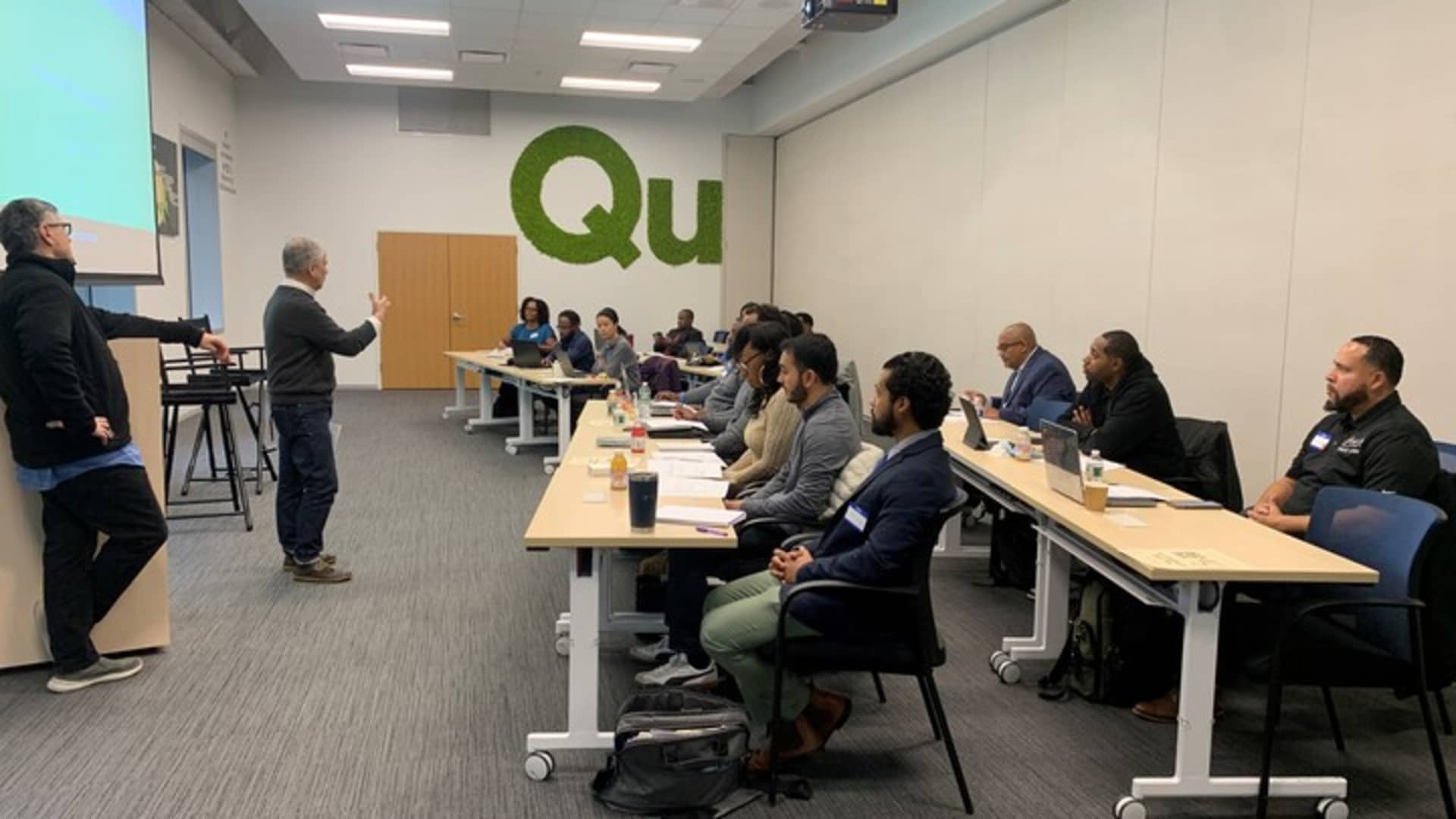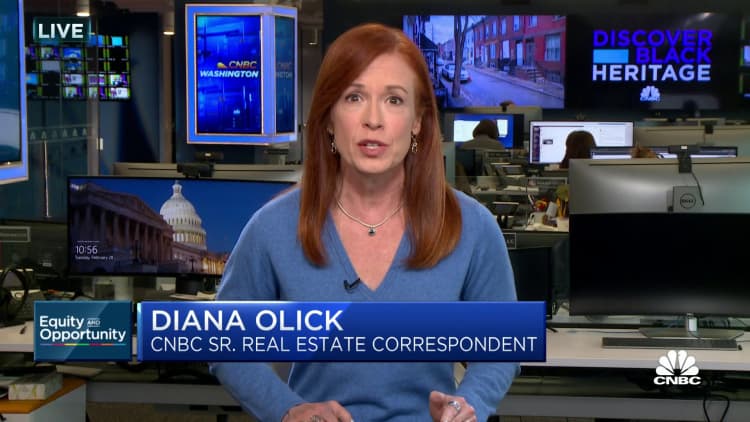

Black Americans represent less than 5% of residential real estate developers, largely because they can’t get equal access to capital, according to a recent report by the Urban Land Institute.
Institutional capital – real estate investment trusts and private equity in particular – are the dominant players. Black developers often don’t have exposure to those investors.
But a new program in Philadelphia is offering developers of color a unique opportunity to build both new homes and their businesses. Philly Rise is designed to recruit, train, support and open up access to capital. The goal: Produce 50 new residential housing units annually for the next five years.
“There is an imbalance, and what we’re trying to do is correct that imbalance by taking away all the barriers, so there’s no reason for anybody to say no,” said Thomas Webster, Philly Rise program director.
Christopher Pitt understands the value of a home more than most.
“I grew up in a two-bedroom shack, 10 people showing up. No gas, limited electric and an outhouse, right?” said Pitt, co-founder of PittPass Development Group.
That’s why he’s been working in real estate for 20 years, developing affordable housing first in Delaware and Maryland, and soon in Philadelphia.
“How do we flip communities from being high rental to homeownership? Because that’s where generational wealth happens, that’s where communities happen,” said Pitt.
But even with his lengthy experience in the business, Pitt still has trouble getting capital for his company’s projects.
“It is extremely hard,” Pitt said, noting that people like to do business with people with whom they share similarities. “But I just don’t think there’s enough minority leadership in those positions.”
After years of self-funding and borrowing hard money at sky-high interest rates, Pitt turned to Philly Rise, which Webster and his community investment partners call a “real estate accelerator.”
“Our goal with our participants is not to teach them how to rehab or build brand new houses, but how to build successful real estate businesses,” said Webster.
In a series of classes for Philly Rise, industry professionals teach the students, who must already be professional developers, how better to access capital and how to work the system to win city projects.
Gaining credibility
It’s aimed at helping developers gaining bankability and credibility, Pitt said: “This goes to taking you from bootstrapping to certified financial documents, meaning that I am saying, ‘It’s OK, bank, I have my paperwork in place, I know my numbers.’ So now again reducing the risk, right? Credibility.”
Each program participant must not only be an experienced developer, but also have 5% of their own capital to commit to the program. Philly Rise invests 10%, and the rest comes from CDFIs – community development lenders certified by the U.S. Treasury.
Khalief Evans, co-founder of Seamless Pros, started rehabbing old homes in 2016. So far his company has done roughly 100 renovations. Like Pitt, he focuses on affordable housing.
“One of the biggest challenges that we face being a small development company in Philadelphia is it’s incredibly difficult to get the funding we need in order to get the project done, as well as scale,” said Evans. “It may be the culture, it may be the level of knowledge that we have regarding financing.”
He said he applied for the Philly Rise program in order to grow his business.
“The lack of knowledge to attain finances does create a huge barrier and the resources, being able to speak with and get guided and mentored by industry professionals that look like you that can emphasize with you, that can reflect on some of the things that you’ve been through and even some of the challenges, it would help,” he said.
Philly Rise is also partnering with the Urban Land Institute, which is the nation’s largest real estate development organization. The institute has an online university it’s providing to the program at a steep discount.
Philadelphia currently estimates it needs about 35,000 new housing units over the next five years, according to Webster. He sees that as a huge opportunity for the cohorts at Philly Rise.
“The model we’re building here really becomes something that can be replicated in any market and become a solution to neighborhood regeneration instead of outside community gentrification,” he said.
–CNBC’s Lisa Rizzolo contributed to this article.







